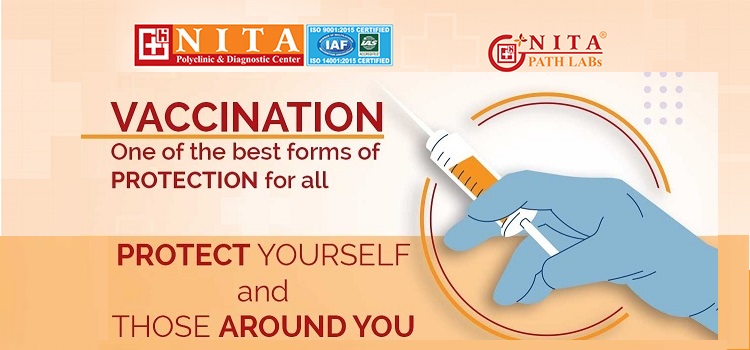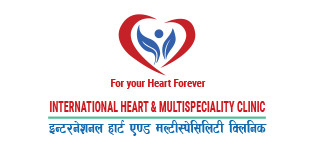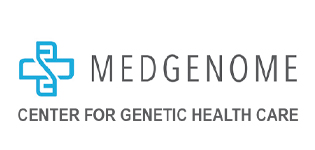Regular testing can help you ensure a safe & healthy pregnancy
- 2023-01-20
Pregnancy is an important phase in a woman's life. At different stages of pregnancy, various tests help determine the development of the baby and the mother's wellbeing.
Early signs of pregnancy:
Missed periods, Implantation
bleeding, Fatigue, Headache, Nausea, Abdominal cramps, Vaginal discharge,
Frequent urination, Breast soreness & tenderness.
Once pregnancy is confirmed, certain pathology tests are undertaken to keep track of the overall health and assess the risk of infections, chronic health conditions like Feto-maternal complications.
Regular testing can help you ensure a safe & healthy pregnancy. Doctor-recommended tests for every stage of your pregnancy
FIRST TRIMESTER (EARLY PREGNANCY CHECKUP)
- Antenatal
Profile: Helps determine the risks to normal fetus development
thus helping in the identification of factors requiring special care.
o
Complete Blood Count
o
Blood Group ABO &
Rh
o
Glucose – Fasting/Random
o
Thyroid Stimulating Hormone (TSH), Ultrasensitive
o
Rapid
Plasma Reagin (RPR)/ VDRL
o
Hepatitis
C Virus Total Antibody (Anti- HCV)
o
Hepatitis
B Surface Antigen (HBsAg)
o
HIV 1 And 2 Antibody
o
Urine Routine & Microscopy
- Hemoglobin Electrophoresis; Abnormal haemoglobin studies
- TORCH
Profile IgG & IgM (10 tests): Determines the presence
of certain infections caused by Toxoplasma(T), a group of other (0) pathogens,
Rubella(R), Cytomegalovirus(C) and Herpes Simplex (H) virus (TORCH) that may
cause maternal illness or birth defects in the newborn.
- Dual
Marker: Test Assesses the risk of certain genetic
abnormalities like Down syndrome and Trisomy syndrome in the fetus. It includes
two markers - Free beta human chorionic gonadotropin (Beta-hCG) & Pregnancy-Associated
Plasma Protein (PAPP-A)
- First Trimester Quad Screen by Auto Delfia (Time Resolved Fluorescence): Alpha Feto Protein (AFP) (Maternal), Free Beta -hCG, PAPP – A, Placental Growth Factor (PLGF)
- Early Pregnancy USG (Early Viability Scan): This is usually done during early pregnancy to look at the site of the pregnancy, the number of gestational sacs, the cardiac activity of the foetus, gestational age and other structures like the uterus and the ovaries.
- Ultrasound NT Scan: Nuchal translucency screening uses an ultrasound to examine the area at the back of the fetal neck for increased fluid or thickening. The nasal bone may not be visualized in some babies with certain chromosome abnormalities, such as Down syndrome. It is done between weeks 11 and 13 of pregnancy.
SECOND TRIMESTER
To ensure the second
trimester of your pregnancy passes off smoothly, the following checkups and
tests are performed during this sensitive period:
- Oedema
or swelling in your feet, ankles or legs. It could be
normal particularly with multiple pregnancy or it may be a sign of feto-maternal
complications such as preeclampsia, blood clot or gestational diabetes.
- Weight: During this phase, your weight is measured to compare and assess the change in weight with pre-pregnancy weight.
- Blood pressure: Blood pressure decreases during pregnancy in response to changing hormones and blood volume. High blood pressure can lead to serious problems during pregnancy. In such cases, the doctor may look for symptoms of preeclampsia or gestational hypertension.
- Glucose Challenge Test (GCT) or Glucose Tolerance Test (GTT) is done to test for gestational
diabetes (diabetes during pregnancy) because the placenta makes hormones that
could cause sugar to rise in the blood. This test is done towards the end of
the second trimester (16 to 18 weeks) if you have had gestational diabetes
before, and also in the third trimester (24 to 28 weeks). If you have risk
factors for gestational diabetes, you will be tested earlier in your pregnancy
as per your doctor suggests, these risk factors include:
o Being older than 35
o Obesity (defined as a pre-pregnancy BMI
greater than 30)
o Aboriginal, African, Asian, Hispanic, or
South Asian ethnicity
o Family history of diabetes
o Polycystic ovarian syndrome or
acanthosis nigricans
o Corticosteroid uses during pregnancy
o Previous pregnancy with GD
o Previous delivery of a baby large than
4000 g
- Urine Routine & Microscopy: Urine test for preeclampsia – A urine test for the presence of protein may be able to detect preeclampsia, a condition marked by high blood pressure and signs of damage to liver, kidneys, or other organs. It can cause blood clotting problems, seizures, and if untreated, can be fatal for the mother and infant.
- USG
Level II or anomaly scan: show how your baby is growing and
check the fetal movements, makes sure your baby's internal organs are
developing well, detects certain birth defects in your baby, estimates the
amount of amniotic fluid, checks the umbilical cord and position of the
placenta, checks for markers of chromosomal abnormalities, checks your cervix,
and measure the birth canal.
- Fetal
Echocardiography test: detect structural or functional
disorders associated with an unborn child’s heart. test can be carried out
around 18 to 24 weeks of pregnancy in majority of pregnancies
- Quadruple
marker test: This test measures the levels of four
marker AFP, Unconjugated Estriol, β -HCG and inhibin A in blood. This test is
done between 14 and 22 weeks of pregnancy. However, the best time for this test
is between 15 and 20 weeks of pregnancy to evaluate your risk of carrying a
baby who has any of the following conditions: Down syndrome (trisomy 21),
Edwards syndrome (trisomy 18), Spina bifida, and Anencephaly.
- Non-Invasive
Prenatal Test (NIPT) performed on maternal blood to screen the
most common fetal chromosome abnormalities such as t21, t18, t13, Monosomy X,
Triploidy and Microdeletions. The test can be used as early as 9 weeks of gestation.
(Valid Between 10-24 weeks of gestation)
- Amniocentesis is
invasive testing involves taking a small sample of the amniotic fluid that
surrounds the fetus. It is used to diagnose chromosomal disorders and open
neural tube defects, such as spina bifida. Testing is available for other
genetic defects and disorders depending on your family history and the
availability of lab testing at the time of the procedure. An amniocentesis is
generally offered to women between the 15th and 20th week of pregnancy who have
an increased risk of chromosomal abnormalities.
- Chorionic
Villus Sampling (CVS) is a prenatal test that involves taking a
sample of some of the placental tissue. This tissue contains the same genetic
material as the fetus and can be tested for chromosomal abnormalities and some
other genetic problems. CVS also need a follow-up blood test between 16 and 18
weeks of pregnancy to screen for these defects.
THIRD TRIMESTER
Starts from month 7 and
lasts until 9 months when the mother is ready to give birth. largely look for
infections and deficiencies.
- Iron
profile Blood test to check for anemia.
- Glucose
test
is done to test for gestational diabetes.
- USG
Scan
An ultrasound to determine where the placenta is and how the baby is growing.
- Group
B Streptococcus Test – To screen a pregnant woman for the presence
of group B streptococcus (GBS) in her vagina or rectum to determine the risk
that she will pass the bacteria on to her newborn during labor and delivery,
possibly resulting in a serious infection in her newborn called early-onset GBS
VACCINATIONS FOR ALL PREGNANT WOMEN
- Routinely recommended during pregnancy: Tetanus, diphtheria, pertussis (Tdap) vaccine or Td and the influenza (flu) vaccine.
- May be recommended during pregnancy if risk of infection is high: Hepatitis B, Meningococcal infection, Rabies, and Polio. Travel vaccine: Hepatitis A, Typhoid fever ((inactivated formulation only)
- Not recommended during pregnancy: Human Papillomavirus (HPV), Measles, Mumps, and Rubella (MMR), Chicken Pox, Shingles, and Tuberculosis (TB)
Medically Reviewed by
- Dr. Sajana Shrestha, MD, Consultant Gynecologist
- Dr. Ramendra Kumar Raman, PhD, Clinical Research



























Leave Comment